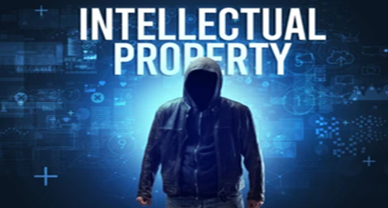Anything New In The Debate Over Intellectual Property Protection (IP)?
There is one group of people delirious with joy about everything digital, and the other side gloomy with a sense of doom. Is there a middle way? We’d dare to suggest there is, but first, everyone must realize that there is no clear answer in this debate. Let’s start by acknowledging the fact that both sides have some excellent viewpoints. This debate runs into a tough terrain because two important principles collide: legal protection for intangible works against free expression and exchange of ideas. IP disputes have always involved the fundamental tradeoff between these two principles.
The most revolutionary voices have suggested that there is no such thing as a right to own intangible ideas and therefore, the whole thought of limited grants of monopolizing is unfair and should be cast aside. To this line of thinking, the cost of protecting IP is just another cost of monetizing, so why give it a cover to socialize it?
Of course, the people in this group acknowledge that there is value in ensuring that innovators are rewarded rightfully for their intellectual creations. After all, at the end of the day, the theory that limits terms of protection provides an entrepreneurial spirit with an incentive to generate products and ideas to make human life better. A very good argument is that in a world, where there is no IP protection, talented individuals would be discouraged from producing vital goods or ideas (imagine life without pharmaceuticals or genetically altered food to feed a big population).
Another group of people who firmly believes in “ protect- everything – under- the-sun” go too in lobbying excessive terms of protection which go beyond any realms of possibility of motivating creators, who often are deceased and seek to expand what is covered by copyright and patent law in the first place. One begins to ridiculously believe that record companies would be adamant about the right to copyright the 12 – bar blues chord progression if they could get away with it. This kind of aggression in protection schemes would require IP policing and would greatly discourage the entrepreneurial spirit.
Companies like IBM accumulating giant patent portfolios, KFC and Coca Cola protect their ingredient through trade secrets for their products. These examples help us understand how companies gain great competitive advantage and amass huge wealth at the same time this is needed in order for them to compete in the marketplace.
So concisely speaking, the problem we face when it comes to issuing of IP and the internet is how to keep a balance between artistic and entrepreneurial incentives in the interest of the user community in a free, unhindered exchange of ideas and products. Again, there are no easy answers, but the following principles can be directed to channel the debate and maybe create common ground:
- Take the principle “To promote the progress of science and useful arts “ seriously: Rational people can legitimately debate the appropriate time periods over which works should be protected. Any term set in law will be arbitrary. But copyright protection that extends far beyond the life of the originator provides decreasing incentives for the person to innovate. Terms of protection may need to be rethought. We should adhere to the Constitution’s goal of promoting the progress of science and useful arts, not unnecessary government monopoly.
- Eliminate barriers to the marketplace’s ability to protect intellectual property: To what extent one would go for secrecy and privacy contracts? To soften the reliance on traditional copyright protection, policymakers should ensure that government regulations don’t stand in the way of private efforts to protect intellectual property. For example, overenthusiastic antitrust enforcement might hamper collective private efforts to license songs. Antitrust laws might cast suspicious eyes on restrictive contracts which could be beneficial to consumers as producers get returns. Academicians have suggested that antitrust law like regulation may force the need for more intellectual property law and enforcement than would otherwise be warranted.
- Restricting new technologies or business models to solve patent or copyright problems: In the raging file -sharing dispute, one side wants to ban file-sharing technologies that reduce copyright control. Meanwhile, those who eagerly share copyright files often laugh at experimental technology by which copyright holders hope to protect works from reproduction, such as digital watermarking, enhanced encryption and attempts to incorporate digital rights management into secure hardware. Some users even regard such effort as technical threats to free expression (even knowing watermarks /encryption can be cracked). Policymakers should support by not banning any category of technology as markets have to undergo these difficult issues. Likewise forcing to “aid” the sharing of IP, such as emerging calls for the imposition of compulsory licensing requirements on record companies. Coercing “Contracts” with their accompanying price controls and regulatory dynamics have no place in a nascent industry that desperately needs to embrace voluntary deals. If organizations go on locking information, other organization and consumers have the option of dealing with less restrictive entrepreneurs. If technologies are contributing to solve problems it has created, we must give it a chance. Digital rights management while it will never fully prevent copying can make it inconvenient enough so that cracking encrypted songs won’t likely be worth the trouble. Maybe a twenty-cent download that gives liner notes, lyrics, a photo or two, and discount coupons on merchandise and concerts is far better a deal than a free song. Perhaps technology can be a better means of managing copyright, in some applications, that can law – even if the law is in place as a backup.
Slowly and gradually there is a shift in the global intellectual property regime from protectionism towards developmental. Though it will take time, it would go a long way in reducing the distortions especially on issues of public interest such as access to medicines to patients, free access to information to all, farmers access to new technology & resources, and education to all.
Author: Tanuja Prasad, Legal Intern, Intern at IP and Legal Filings, and can be reached at support@ipandlegalfilings.com.


